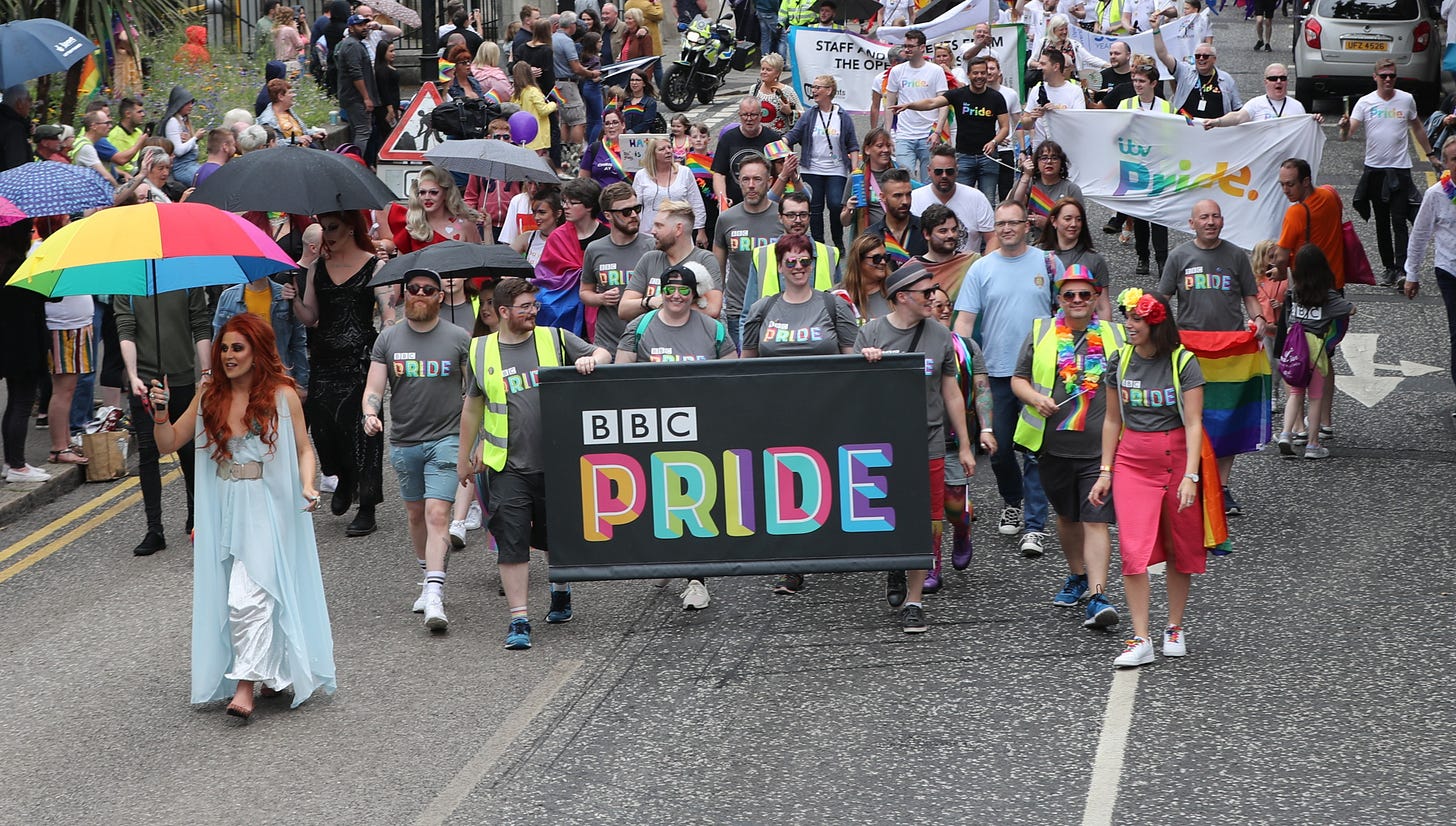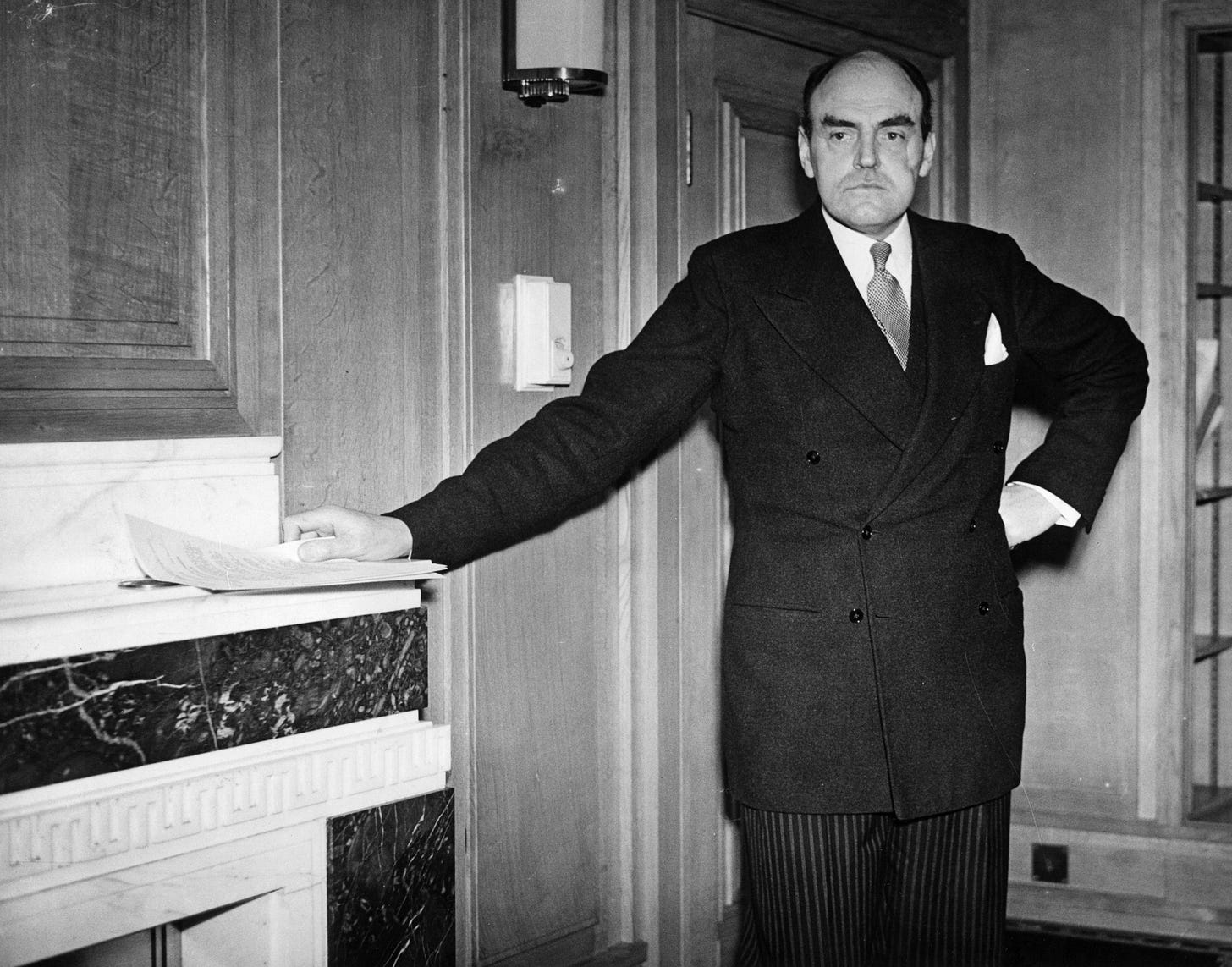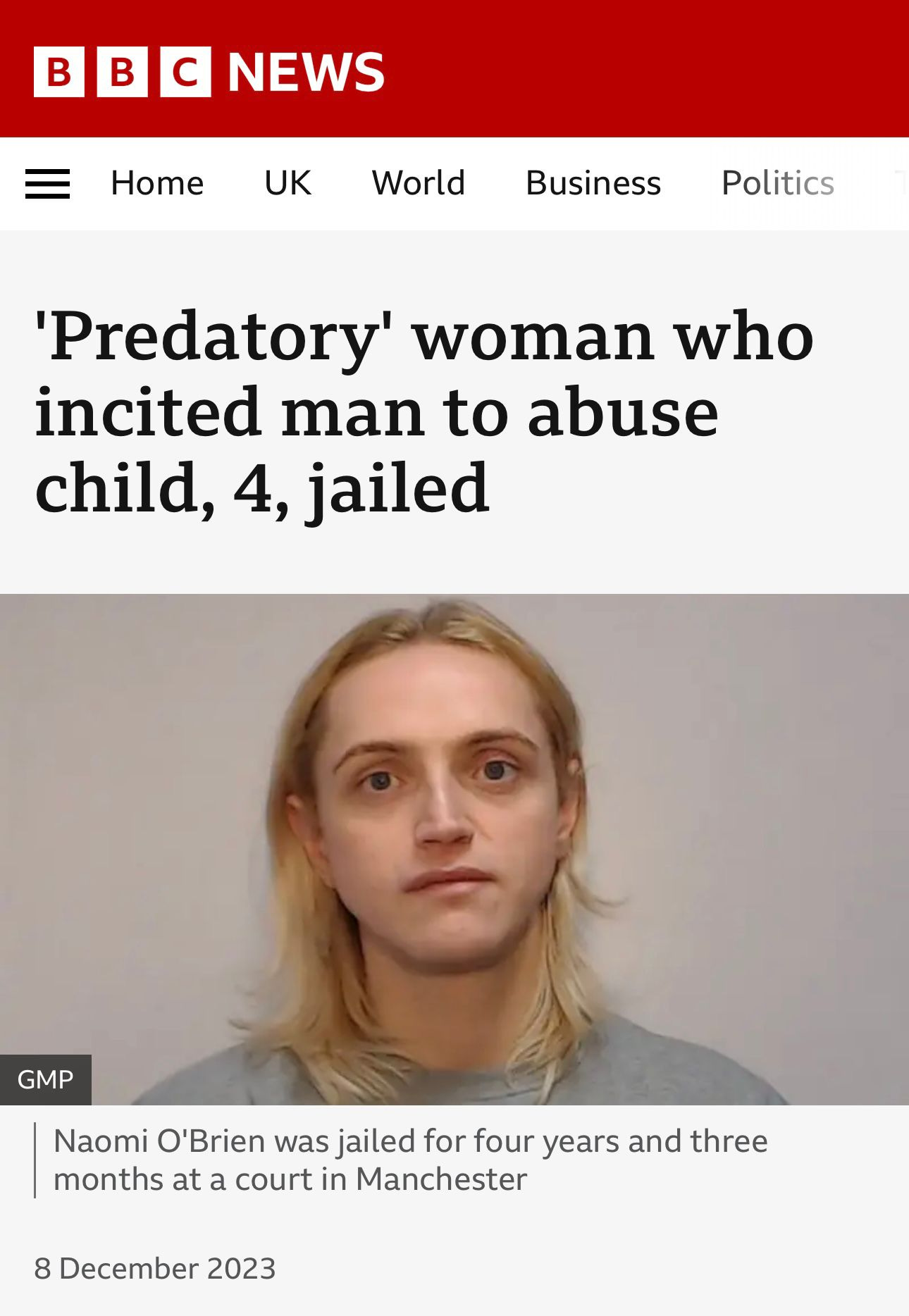Institutionally woke: how the BBC lost its sense of purpose
Once committed to cultivating public taste, the corporation now seeks to reshape public morals.
Sir John Reith was not a fan of the printed press. The original head of the BBC compared his Fleet Street critics to ‘seagulls squawking round the masts of a stately ship as it takes to sea’, implicitly elevating his mission as something inherently majestic and noble. In those early years following the BBC’s foundation in 1922, Reith faced continual assaults from these uppity squawkers. They were concerned about the corporation’s monopoly, and how it might encroach on their market and exploit public funding to gain an unfair advantage. Most of all, they were worried about Reith’s determination to guide the public taste rather than respond to it.
Reith’s philosophy is often summarised in the dictum – still retained in its charter’s mission statement – ‘to inform, educate and entertain’. His determination to programme more obscure works of classical music was based on a conviction that this was what the public needed, not what it necessarily wanted. In the fifth volume of his autobiography, the novelist Compton Mackenzie recalls a meeting at the BBC in 1923 in which Reith attacked the press for insisting that ‘the miseries of chamber music and Bach cantatas’ ought to be eschewed to pander to more popular tastes. Reith banged his fist down onto the table and growled: ‘The Press think that they can smash the BBC. The Press will find they are mistaken.’
This insistence that the BBC was there to advance the arts and culture, irrespective of degrading public tastes, surely had some merit. As David Hendy has pointed out in an article on Reithianism: ‘Most of us can only choose to “consume” what’s already been made available to us: it’s pretty hard to choose something if we’re not even aware it exists’. And yet this laudable principle no longer seems to apply. The BBC overtly chases the next trend as a matter of policy. I remember being sent the official guidelines for BBC Radio 4 commissioners in 2014, which asked the rather depressing question: ‘What is the next zeitgeisty theme we can cluster dramas around?’ Reith would have had a conniption.
Yet while the BBC has reneged on its founder’s ideal to foster taste in the arts, it appears to have transferred this philosophy to the realm of ‘social justice’. That is to say, its reporting is now driven by a conviction that the public should be given the news it needs, not the news it wants. What the public generally wants is accurate and unbiased reporting; what the BBC thinks it needs is selective and editorialised treatment of the facts in order to serve the ideological leanings of its staff. In other words, the paternalism through which Reith once sought to cultivate artistic taste has been redirected toward moral and political opinion.
Perhaps this is to state the case too strongly. Certainly, there is some effort expended on holding all major political parties to account in BBC commentary and investigative reporting. For all the endless debates over whether the state broadcaster skews more to the left or the right – leftists tend to claim the latter, rightists the former – the major problem relates more to ideology. That is to say, there can be no serious doubt that the BBC has, for many years now, been dominated by an identity-obsessed intersectional worldview, one that we colloquially term ‘woke’.
The resultant erosion of the BBC’s credibility has been glaring. What can one say of a broadcaster that refuses to refer to Hamas as ‘terrorists’, in spite of its status as an officially designated terrorist group? Then there was that infamous documentary about the Middle East conflict - Gaza: How To Survive a Warzone - which was narrated by the son of a Hamas minister, without acknowledging the obvious bias that this decision would entail. To make matters worse, the subtitles were mistranslated so that Palestinians’ references to ‘the Jews’ became ‘Israelis’ and all mentions of ‘jihad’ were omitted altogether. One participant, praising the terrorist Yahya Sinwar, spoke of ‘jihad against the Jews’. The BBC silently rendered this as a fight against ‘Israeli forces’.
Whatever else we might say about such disinformation, it falls well below the standards required by the corporation’s charter. Into this category we would also place the deliberate inaccuracies peddled by the BBC when it insists on referring to male rapists and serial killers as ‘she’. On some occasions, it has been known to elide entirely the ‘trans status’ of the criminal in question, such as the example below.
Then there is the question of the ‘WPATH files’, the most shocking medical scandal in living memory that, even now, a year and a half after the news broke, has yet to be mentioned by the BBC. The leaked documents proved that the leading international body on ‘gender-affirming care’ was promoting experimental treatment in the knowledge that many of its patients could not give informed consent. This is medical malpractice on a global scale which has resulted in the mass sterilisation and mutilation of children and vulnerable people. Yet the BBC is so wedded to the creed of genderism that it has simply pretended that these revelations didn’t occur. (For more on the WPATH Files, see here.)
And now an investigation by Michael Prescott, former advisor to the BBC’s Editorial Guidelines and Standards Committee, has confirmed that the woke bias is endemic. Prescott produced a 19-page dossier outlining the most egregious examples of ideological misinformation promoted by the corporation…
— To continue reading this article, please consider becoming a paid subscriber —





